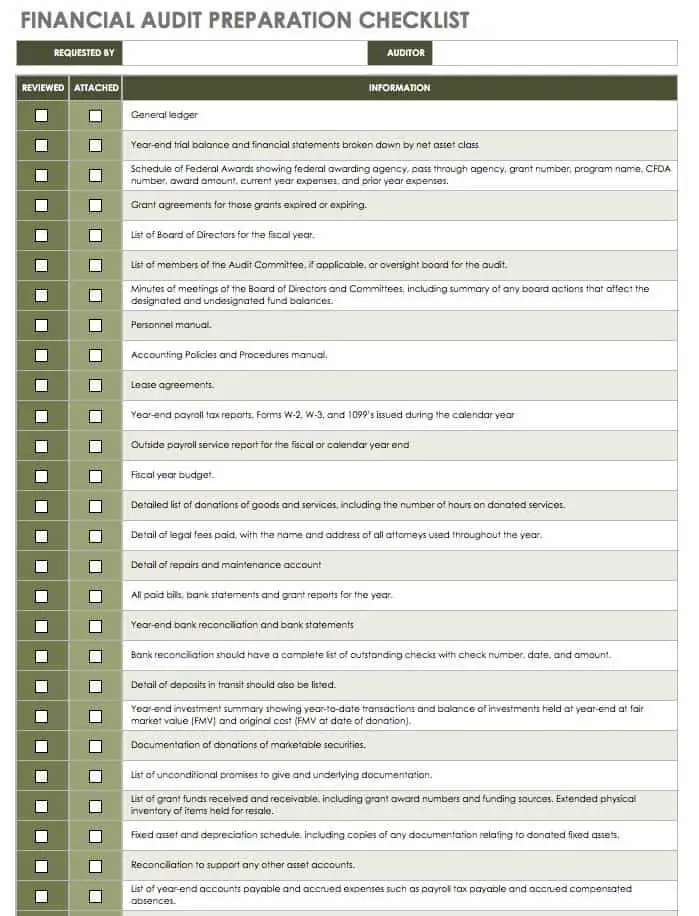Managing finances during grad school can be a challenge, but fear not! We’ve got you covered with some invaluable tips for navigating the financial aspects of your academic journey while staying on top of your game. From budgeting wisely to exploring funding options, we’ll walk you through practical strategies to make the most of your resources and focus on what truly matters—the pursuit of knowledge. So, whether you’re a current grad student or considering further education, keep reading for essential tips for managing finances during grad school.
Tips for Managing Finances During Grad School
Graduate school can be an exciting and challenging time in your life. It’s a period of intense academic pursuit and personal growth. However, it can also be financially demanding, especially if you’re relying on scholarships, grants, or limited income sources. Managing your finances effectively during grad school is crucial to ensure you can focus on your studies without unnecessary stress. In this article, we will provide you with valuable tips to help you stay on top of your finances and make the most of your graduate school experience.
Create a Budget
One of the first steps to take when managing finances during grad school is creating a budget. A budget serves as a roadmap for your spending and helps you track your income and expenses. Here’s how you can get started:
- Calculate your income: Determine all the sources of income you have, including stipends, part-time jobs, scholarships, or any financial support from family.
- List your expenses: Make a comprehensive list of all your expenses, including tuition, housing, utilities, transportation, groceries, textbooks, healthcare, and any other recurring costs.
- Set financial goals: Define short-term and long-term financial goals. These could include saving a specific amount each month, paying off student loans, or building an emergency fund.
- Allocate funds: Assign a specific portion of your income to each expense category. Ensure that your essential expenses are covered first, then allocate funds for discretionary spending.
- Track and adjust: Regularly track your spending and compare it with your budget. Make adjustments as necessary to stay on track and meet your financial goals.
Minimize Living Expenses
During grad school, finding ways to minimize your living expenses can make a significant difference in your financial well-being. Here are some tips to help you reduce costs:
- Consider shared housing: Sharing an apartment or house with roommates can significantly lower your monthly rent and utilities.
- Meal planning and cooking at home: Eating out can quickly add up. Plan your meals in advance, make a grocery list, and cook meals at home to save money on food.
- Use public transportation or walk: If possible, opt for public transportation or walking instead of owning a car. This can save you money on gas, parking fees, insurance, and maintenance.
- Shop smart: Take advantage of student discounts, buy used textbooks, shop during sales, and compare prices before making big purchases.
- Reduce entertainment expenses: Look for free or low-cost entertainment options, such as campus events, museums, parks, or student organizations.
Maximize Income
While pursuing your graduate studies, maximizing your income can help alleviate financial stress and provide more financial flexibility. Here are some strategies to boost your income:
- Explore part-time employment: Consider taking up a part-time job that aligns with your schedule and allows you to gain valuable experience related to your field of study.
- Freelancing or gig work: Utilize your skills or hobbies to earn income through freelance work or gig platforms.
- Apply for scholarships and grants: Research and apply for various scholarships and grants available for graduate students. These can provide additional financial aid.
- Tutoring or teaching assistant positions: If you excel in a specific subject area, explore opportunities to tutor other students or work as a teaching assistant.
- Seek funding opportunities: Stay informed about research grants, fellowships, or internships that can provide financial support while also contributing to your academic and professional development.
Manage Student Loans Strategically
If you have student loans to repay or anticipate taking them out during grad school, it’s essential to manage them strategically. Consider the following tips:
- Borrow only what you need: Carefully evaluate your financial needs and borrow only the amount required to cover tuition and necessary expenses.
- Understand the terms: Familiarize yourself with the terms and conditions of your student loans. Know the interest rates, repayment plans, and any available forgiveness or deferment options.
- Make interest payments if possible: If you have unsubsidized loans or loans accumulating interest during your studies, consider making interest payments to prevent accruing a larger balance.
- Explore loan repayment assistance programs: Some employers, especially in certain professions, offer loan repayment assistance programs as part of their benefits package. Research these opportunities and consider them when job hunting.
- Seek loan consolidation or refinancing: If you have multiple loans with high-interest rates, explore consolidation or refinancing options to potentially lower your interest rates and simplify your repayment process.
Save for Emergencies and the Future
Building an emergency fund and saving for the future is crucial during grad school. Here’s why it matters and how you can make it happen:
- Prepare for unexpected expenses: Having an emergency fund can provide a safety net in case of unforeseen circumstances like medical emergencies, car repairs, or unexpected travel.
- Set up automated savings: Automate your savings by setting up automatic transfers from your checking account to a separate savings account. This way, you save consistently without the temptation to spend.
- Save a percentage of your income: Aim to save at least 10% of your income each month. If possible, increase this percentage over time to accelerate your savings growth.
- Explore retirement savings options: If your budget allows, consider contributing to a retirement account like a Roth IRA or a 401(k) if offered through your institution or employer.
Take Advantage of Student Discounts and Resources
As a graduate student, you often have access to various student discounts and resources that can help you save money. Here are some areas to explore:
- Technology and software discounts: Many companies offer discounted rates on computers, software, and other technology products for students. Take advantage of these discounts to save money on essential tools for your studies.
- Library resources: Fully utilize your university’s library resources, including books, journals, online databases, and research materials. This can save you money on purchasing textbooks or accessing external resources.
- Campus facilities and services: Explore the facilities and services available on your campus, such as fitness centers, counseling, health clinics, career services, and cultural events. These are often included in your tuition or available at reduced rates.
- Publications and subscriptions: Some professional organizations offer discounted rates or free subscriptions to their publications for students. Stay informed about these opportunities to access valuable resources.
Seek Financial Guidance and Support
If you find yourself struggling with managing your finances during grad school, don’t hesitate to seek professional guidance and support. Here are some resources you can turn to:
- Financial aid office: Reach out to your university’s financial aid office for advice, information about scholarships, grants, and other forms of financial assistance.
- Career services: Tap into your university’s career services department for guidance on finding part-time employment, internships, or career opportunities that align with your financial goals.
- Student organizations: Join student organizations focused on finance, budgeting, or entrepreneurship. These groups can provide valuable insights and peer support for managing your finances.
- Online communities and forums: Participate in online communities or forums where students or graduates share their experiences and strategies for managing finances during grad school.
- Financial literacy programs: Some universities offer workshops, seminars, or online courses on financial literacy. Explore these resources to enhance your knowledge and skills.
By implementing these tips for managing finances during grad school, you can alleviate financial stress, focus on your studies, and build a solid foundation for your future. Remember, being proactive and disciplined about your financial management will not only benefit you during grad school but also set you up for financial success in the long run.
5 Financial Tips for Grad Students: How to save more money and set up your future in Graduate School
Frequently Asked Questions
Frequently Asked Questions (FAQs)
1. How can I budget effectively during grad school?
Creating a budget is essential for managing finances during grad school. Start by tracking your income and expenses, including tuition fees, rent, utilities, groceries, transportation, and books. Identify areas where you can cut back and prioritize necessary expenses. Consider using budgeting apps or spreadsheets to help you stay organized.
2. Are there any scholarships or grants available for graduate students?
Yes, there are various scholarships and grants specifically designed for graduate students. Research and apply for funding opportunities offered by your university, external organizations, government agencies, or professional associations. Keep an eye out for deadlines and ensure you meet all the eligibility criteria when applying.
3. What are some ways to save money on textbooks?
Textbooks can be expensive, but there are several ways to save money. Consider purchasing used books, renting them, or buying digital versions instead. Check if your university library has copies of required textbooks or if they offer any textbook-sharing programs. You can also explore online platforms for discounted or second-hand books.
4. How can I minimize my student loan debt?
To minimize student loan debt, start by only borrowing what you truly need. Look for part-time jobs or assistantships within your field of study to help cover living expenses. Explore loan forgiveness programs or repayment plans that align with your career goals. Additionally, consider applying for grants or scholarships to reduce reliance on loans.
5. Should I consider a roommate or shared housing to save money?
Living with a roommate or in shared housing can significantly reduce living expenses. Splitting rent and utilities can help you save a substantial amount of money. Ensure you choose a reliable roommate who shares similar financial values and responsibilities. Take the time to establish clear communication and guidelines to avoid potential conflicts.
6. Are there any discounts or benefits available for grad students?
Many universities and businesses offer discounts and benefits specifically for graduate students. Check with your university to see if they provide any perks, such as reduced gym membership fees or discounted public transportation passes. Additionally, some software companies offer student discounts on useful tools for research or productivity.
7. How can I earn extra income while pursuing my graduate degree?
There are various ways to earn extra income while in grad school. Look for part-time jobs or freelance opportunities within your field of study or consider online tutoring, which can be done remotely. If permitted, you can also explore options like driving for rideshare services or participating in paid research studies.
8. What resources are available for financial assistance and counseling?
Most universities have financial aid offices that can provide guidance and resources for managing finances during grad school. They can help you navigate scholarship applications, loan options, and financial planning. Additionally, consider reaching out to financial advisors or counselors who specialize in assisting students with financial matters.
Final Thoughts
In conclusion, effectively managing finances during grad school is crucial for a smooth journey towards academic success. Start by creating a budget to track your expenses and prioritize essential items. Seek out financial aid options such as grants, scholarships, and assistantships to alleviate the burden of tuition fees. Save money by opting for used textbooks, cooking at home, and finding affordable housing options. Look for part-time jobs or freelance opportunities to supplement your income. Lastly, consider seeking financial advice from professionals or utilizing resources provided by your school. By implementing these tips for managing finances during grad school, you can navigate this stage of your academic career with confidence.



